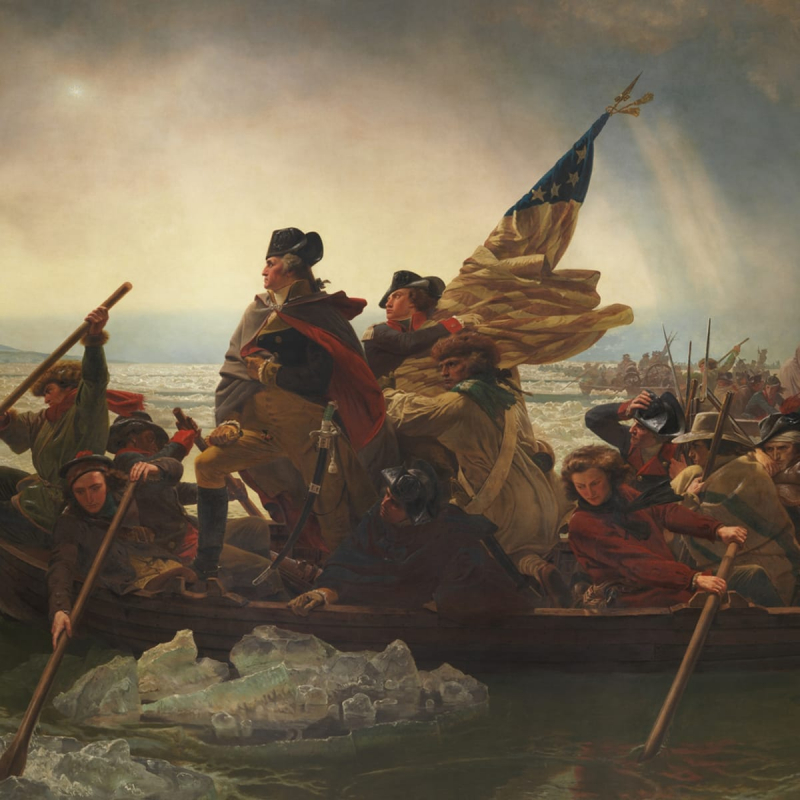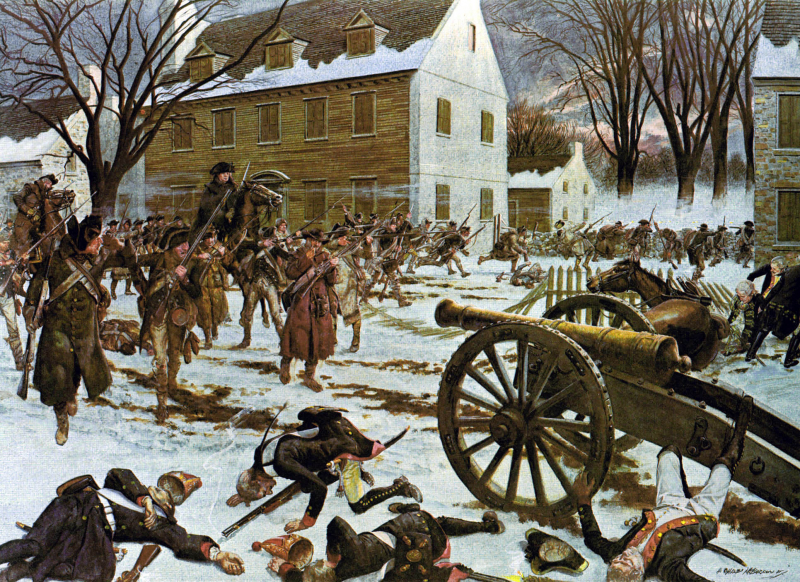Battle of Trenton
With the successful Siege of Boston (April 19, 1775 - March 17, 1776) that drove the British out of the city, Washington launched his campaign in the Revolutionary War. Later, he deployed his army to protect New York. On August 27, 1776, he was soundly defeated at the Battle of Brooklyn, narrowly avoiding a catastrophe by moving his troops to Manhattan. Then he experienced a string of setbacks that resulted in the total evacuation of his army from New York, across New Jersey, and into Pennsylvania. The Continental Army's morale was at an all-time low as a result of these setbacks, and many soldiers had deserted. In this situation, Washington came up with the audacious idea to assault the opposing forces based in Trenton, New Jersey.
The legendary crossing of the Delaware River by American forces came first, and it was done so "with nearly tremendous difficulty." Approximately 900 men, along with supplies, weapons, and ammunition, were taken prisoner as they swiftly defeated the German missionaries at Trenton. Due to its significance, the victory at the Battle of Trenton on December 26, 1776, is seen as a turning point in the American Revolution. It helped the Patriots' morale and motivated people to enlist, among other things. On January 3, 1777, Washington seized the British garrison in Princeton, New Jersey, as a result of his success in Trenton. This battle was one of the major accomplishments of George Washington.











